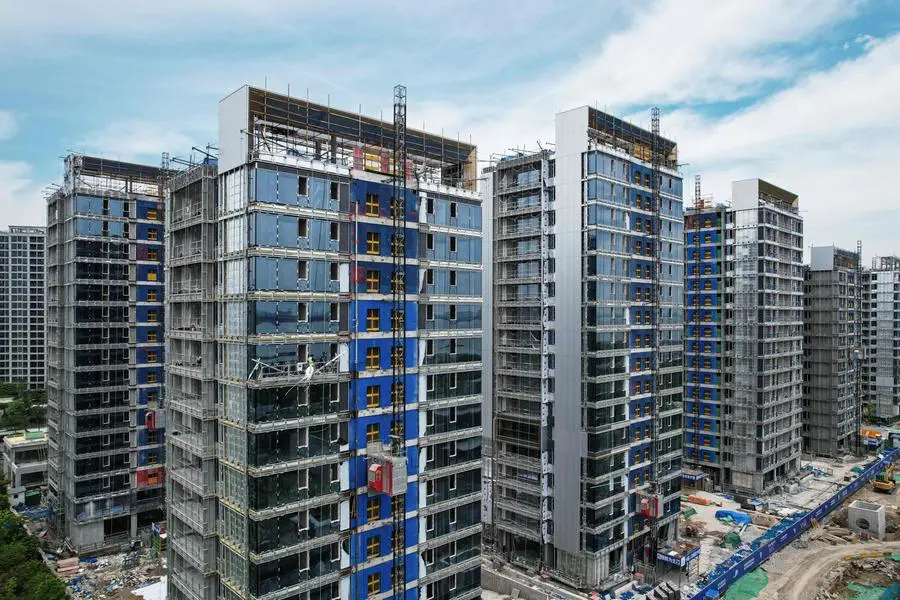PHOTO
China unveiled a flurry of measures on Friday to support the country's ailing property market, where the vast debt accumulated over recent years now threatens the stability of the wider economy.
Here's what you need to know:
- What are the issues? -
China's real estate market once served as a vital growth engine, with rapid urbanisation and rising living standards fuelling a construction boom in what is now the world's second-largest economy.
But the sector has fallen on hard times in recent years, with major developers struggling to secure funds to complete projects and falling home prices dissuading consumers from investing.
With an anticipated strong post-pandemic recovery failing to materialise, continuing woes in the property market are raising concerns about potential spillover effects.
Evergrande was among the first major property developers to encounter turbulence. The firm was handed a winding-up order this year by a Hong Kong court after struggling for years to repay creditors following its 2021 default.
Country Garden -- also a leading Chinese developer -- is now in the midst of a legal battle that could see it face a similar fate, as a creditor takes to a court in Hong Kong to demand the firm's liquidation.
Vanke is the latest to face turmoil, with S&P downgrading its credit rating of the firm in April, citing "weakening property sales and margins" and "slowing land acquisitions".
- What are the new measures? -
Beijing has come under increasing pressure to step in and provide support for the vital sector.
Officials took action on Friday, cutting the minimum down payment rate on mortgages for first-time home purchasers from 20 percent to 15 percent.
"This is the lowest down payment requirement... in history," Yan Yuejin, research director of the Yiju Research Institute, told AFP.
"Its impact will be very huge," he said, adding that "we are very optimistic about the potential effects (these policies) will have on boosting the real estate market".
Also on Friday, Vice Premier He Lifeng said at a State Council meeting that "relevant local governments should... properly handle transferred idle residential properties through retaking, acquisition... to help housing companies with financial difficulties solve their challenges".
The statement didn't say how many properties would be bought.
But the announcements are some of the strongest moves yet by Beijing aimed at relieving pressure on the struggling sector.
- Will they work? -
The outlook for policymakers looking to actualise a strong rebound remains uncertain -- Friday's announcements coincided with the release of new data for April that show a mixed bag for China's recent economic performance.
Industrial production last month beat expectations, rebounding to expand 6.7 percent year-on-year, even as consumption and home prices continued to decline.
The gloomy indicators appear to "have finally triggered a sense of urgency that's strong enough to force material action", said Societe Generale analysts Wei Yao and Michelle Lam in a note about Friday's measures.
"The most important positive shift to us is the leadership's willingness to correct course, balancing away a bit from focusing solely on long-term supply-side build-up," they said.
"The chance of housing finding a bottom soon is rising, which is a factor that can improve the economic imbalance, in turn reviving confidence and driving a more sustained rally in China assets."





















